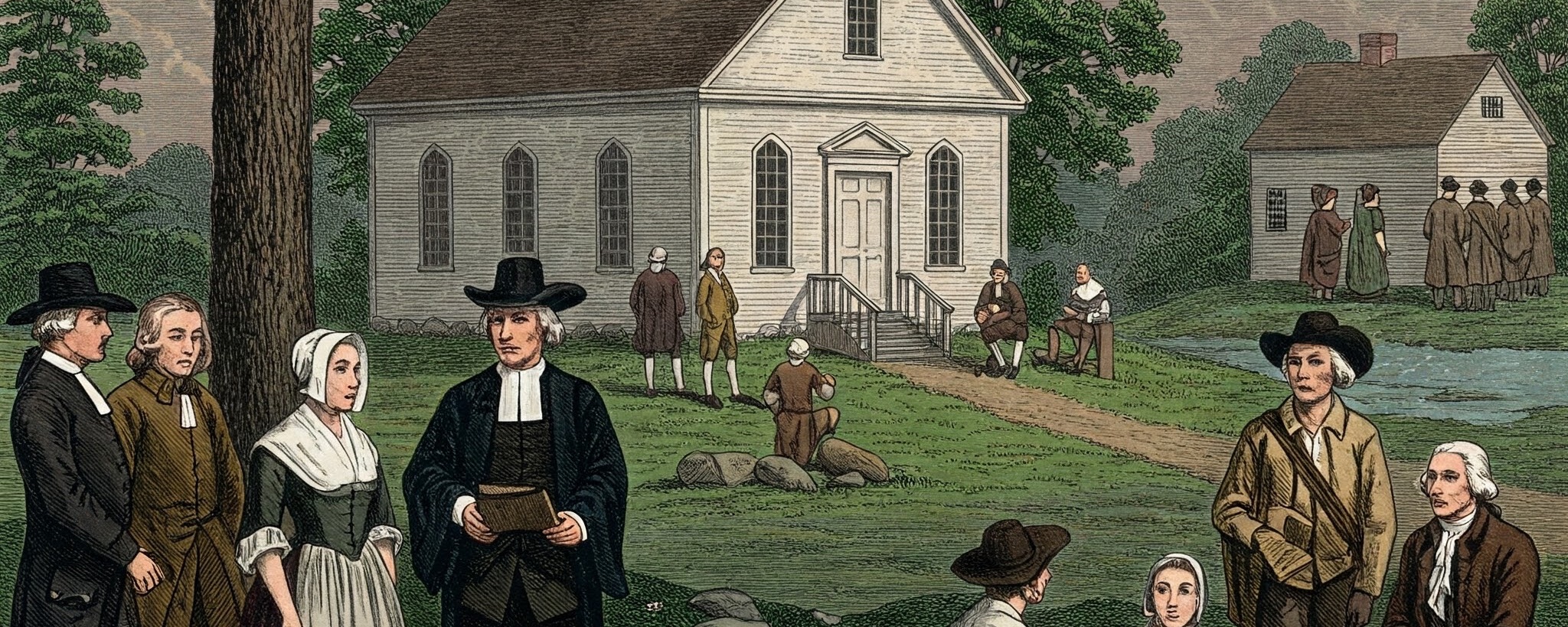Reason, Radicalism, & Reticence
The Unorthodox Faith of America’s Founders
An Age of Enlightenment and Unbelief
The American Revolution was a product of the Enlightenment, a period defined by its celebration of reason, skepticism, and individual liberty. While many founding fathers held conventional religious beliefs, a core group of influential thinkers applied this rational scrutiny to the doctrines of organized religion itself. They championed reason and personal conscience over clerical authority and divine revelation, leading to profound and often radical conclusions about God, nature, and morality. This exploration delves into the unorthodox faith of these key figures—from the fiery, public condemnations faced by Thomas Paine to the private, meticulous re-interpretations of Thomas Jefferson. It reveals a complex landscape of belief where political courage did not always extend to open religious dissent, forcing some of the nation’s greatest minds to navigate a perilous path between private conviction and public persona.
Thomas Paine: The Radical
“My own mind is my own church.”
Thomas Paine, the celebrated author of the revolutionary pamphlet *Common Sense*, applied the same radical logic to religion in his work *The Age of Reason*. In it, he rejected miracles, divine revelation, and the divinity of Jesus, arguing for a rational belief in a creator God discoverable through the natural world. This anti-clerical stance was not Deism in a quiet, philosophical sense; it was a direct, public assault on the foundations of institutional Christianity. The book, published in parts starting in 1794, was met with widespread condemnation and accusations of atheism. The man who had been hailed as a hero of the Revolution was now condemned in the press as a dangerous infidel.
From Hero to Pariah: A Tale of Two Books
The public’s reaction to Paine’s religious views is starkly illustrated by comparing the sales of *Common Sense* and *The Age of Reason*. While exact figures are impossible to verify, historical estimates paint a clear picture. *Common Sense* was a phenomenon, while *The Age of Reason* was controversial and sold far less, despite its notoriety. The best-selling work of fiction in America at the time, Susanna Rowson’s *Charlotte Temple*, provides further context for what the reading public preferred.
A Lonely End
Paine’s ostracization was so complete that upon his death in 1809, only a handful of people attended his funeral. He was denied burial in a Quaker cemetery. The small procession to his farm in New Rochelle was a testament to his fall from public grace.
Attendees at Paine’s Funeral (Approx. 6):
- Madame de Bonneville, his French housekeeper
- Benjamin and Thomas, sons of Madame de Bonneville
- Two Black men, possibly freedmen
- A few other sympathetic individuals
Paine’s American publisher for his political writings, Elihu Palmer, was a fellow radical and former minister who also faced public scorn for his views. While stories of fires at publishers’ offices circulated, the primary opposition came through organized suppression, boycotts, and public denouncements rather than just physical destruction.
Thomas Jefferson: The Re-editor
“I have performed this operation for my own use, by cutting verse by verse out of the printed book…”
Thomas Jefferson, while sharing much of Paine’s skepticism, took a far more private and academic approach. He believed the moral teachings of Jesus were the most “sublime and benevolent code” ever offered to man, but that they were buried under layers of “superstition, fanaticism, and fabrication.” Over several years, culminating around 1820, he meticulously created his own version of the New Testament, physically cutting and pasting verses from Greek, Latin, French, and English Bibles. The result, *The Life and Morals of Jesus of Nazareth*, was a purely ethical text, a testament to his belief in reason as the ultimate arbiter of truth.
Separating “Diamonds from Dunghills”
Jefferson’s goal was to excise every single element that defied reason. He methodically removed all miracles, supernatural events, and claims of divinity. By toggling the view below, you can see the stark contrast between what he kept and what he discarded.
Teachings Preserved:
- The Golden Rule
- The Beatitudes (Sermon on the Mount)
- Parables with moral lessons
- Exhortations to peace, forgiveness, and charity
- Ethical instructions for living a virtuous life
Supernatural Elements Excised:
- The Virgin Birth and the Annunciation
- Turning water into wine
- Walking on water
- Healing the sick, blind, and lame
- The Resurrection and Ascension
Ethan Allen: The Frontier Radical
Revolutionary War hero Ethan Allen of Vermont was another figure who publicly challenged religious orthodoxy. His 1784 book, *Reason, the Only Oracle of Man*, was one of the first American publications to openly attack Christianity and advocate for a religion of nature. Like Paine, he argued that human reason was sufficient for understanding the world and a creator, making clerical institutions obsolete. The book was a commercial failure and was widely condemned, effectively ruining Allen’s political prospects. His outspokenness serves as another example of the high social cost of radical religious critique in early America.
Benjamin Franklin: The Circumspect Pragmatist
Benjamin Franklin, a world-renowned scientist and diplomat, was privately a skeptic but publicly a model of civic virtue. He found organized religion useful for promoting morality and social order, even if he did not subscribe to its specific dogmas. Franklin avoided public religious controversy, understanding that a reputation for piety was essential for political influence and social standing. His approach was one of pragmatism; he chose to be circumspect about his personal doubts, focusing on public works and a widely admired ethos of industry and frugality, thus preserving his immense influence.
A Spectrum of Skepticism
The founders’ approaches to religious skepticism can be seen on a spectrum, from outspoken radicalism to careful public reticence. This choice was not merely philosophical; it was deeply pragmatic, shaped by an awareness of what could be lost. Click on each figure to see a summary of their position and its consequences.
Paine
Allen
Jefferson
Franklin
Click a name to learn more.
Legacy and Final Thoughts
Why were Jefferson and Franklin so much more careful than Paine and Allen? They had more to lose. By the time *The Age of Reason* was published, Paine’s revolutionary star had faded. Jefferson, however, was an active and ambitious politician, and Franklin was a revered international statesman. An open declaration of heterodoxy would have been political suicide, weaponized by their opponents to discredit them and their political projects. Their reticence was a calculated decision to preserve their ability to shape the new nation.
There is no significant record of these figures commenting on specific, esoteric passages like the divine chariot in the Book of Ezekiel. Their focus was not on deep biblical exegesis but on the broader philosophical questions of God’s nature, the role of reason, and the moral teachings of Jesus, which they saw as central to the project of building a virtuous and free republic.



